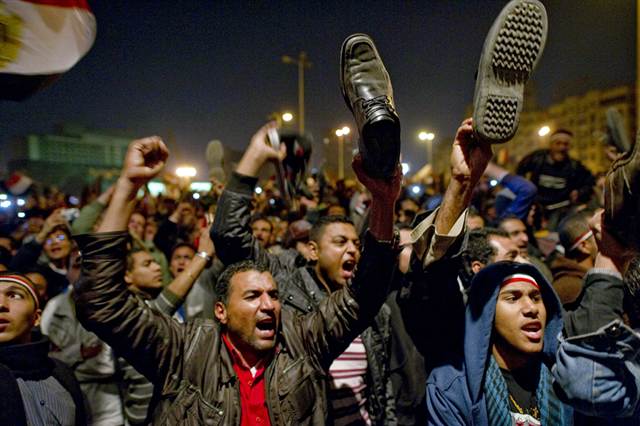
CAIRO — Egypt's people-power protesters(抗议者), reeling(摇晃着移动) with disillusion(理想破灭) and anger after President Hosni Mubarak disappointed their hopes he was about to resign(辞职), planned massive new demonstrations on Friday that may test(考验) the army's loyalties.
The increasingly sour confrontation(对抗) after 17 days of unrest(骚乱,动荡) has raised fears of violence in the most populous Arab nation, a key U.S. ally in an oil-rich region where the chance of disorder spreading to other repressive(镇压的) states has troubled world markets.
Hours after Mubarak's speech Thursday night, hundreds of protesters converged on Egypt's presidential palace, where security is thick, Sharif Kouddous of Democracy Now said from Cairo on msnbc cable TV's "The Rachel Maddow Show." It was not known if Mubarak was there.
Troops have pledged(保证,宣誓) to protect the right to demonstrate.
However, the lengthening showdown(摊牌,一决胜负) may test that resolve(决心), with many Egyptians eager to end the economic disruption(中断,瓦解) of the protests and the army command keen to show it can impose order.
"My great fear is that if the demonstrations don't end that the military begins to split(分裂) over(因……) this. You may have younger commanders who don't want to go down with the ship," said Elliott Abrams, a former U.S. deputy national security adviser.
"If the demonstrations build ... then you once again face the army with the choice they have sought to avoid -- put the demonstrations down or get rid of Mubarak. They have managed so far not to make that choice, but if the people stay in the streets then they are going to have to make that choice."

